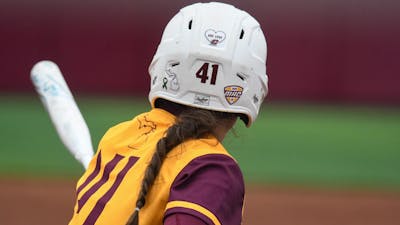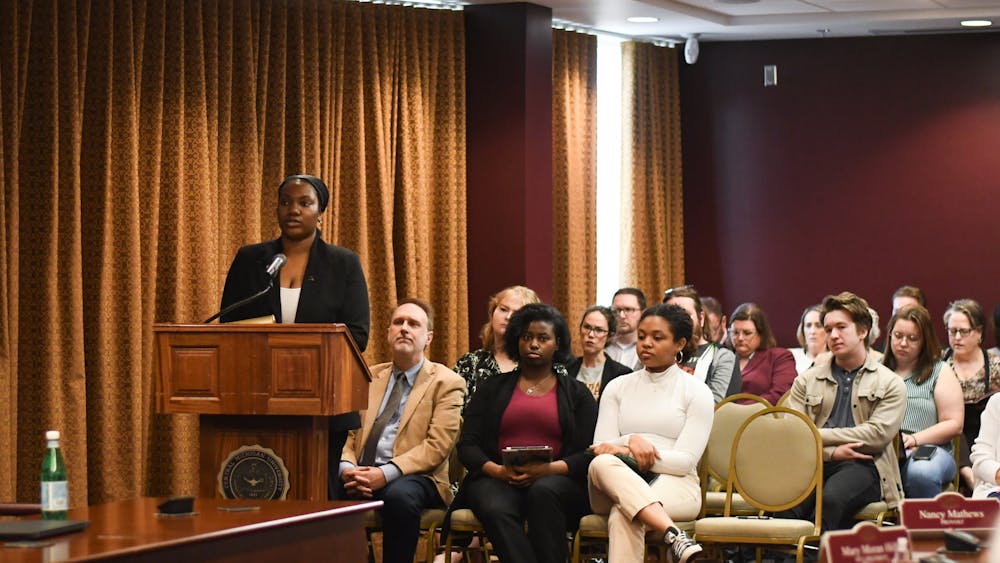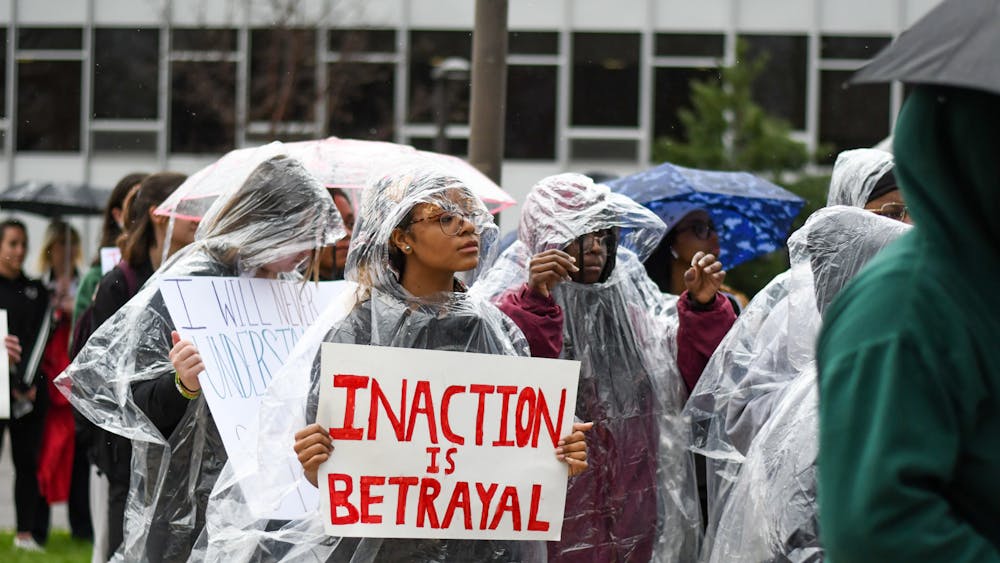'Simply a miserable decision': MAC commissioner Jon Steinbrecher discusses football cancellation
On top of football, all fall sports in the MAC have been canceled due to COVID-19 pandemic

When Jon Steinbrecher was tasked with making the decision to cancel the 2020 Mid-American Conference men's and women's basketball tournaments in March, he said he did let his emotions take over, he just worked through the situation.
Steinbrecher, the commissioner of the MAC, said he had a similar feeling on Aug. 8 when he was tasked with canceling the 2020 fall sports season. After discussions with athletic directors and university presidents, the 12 presidents unanimously voted to cancel the fall season amid the COVID-19 pandemic.
The MAC is the first conference in the Football Bowl Subdivision to pull the plug on its 2020 football season along with the other fall sports.
"This is simply a miserable decision," Steinbrecher said. "It is a decision that affects roughly 2,500 student-athletes who live for the moment to compete. Those opportunities and moments are fleeting and our student-athletes have a limited window in which to showcase their talent, their passion and their drive for excellence."
League presidents met on Thursday and the meeting lasted longer than anticipated and was carried over to Saturday when the presidents met again and made the decision to cancel the season.
While the league said it plans to move all of its fall sports to the spring, there is no firm timeline on when that would take place. The sports affected are men's and women's cross country, field hockey, football, men's and women's soccer and women's volleyball.
"If you told me in March we'd be here today, I would have never believed it," Steinbrecher said. "Over the last several weeks, you're certainly contemplating what some of the possibilities could be. Hoped this wouldn't be the case, but here we are."
Winter sports, such as men's and women's basketball, gymnastics and wrestling, among others, are still planned to be played as scheduled.
Shutting down the football season was not made with the financial ramifications in mind, rather, the health and well-being of the student-athletes and coaches, Steinbrecher said. In football alone, the conference was set to lose millions from canceled games at Power Five schools.
Central Michigan missed out on $2.15 million after games at Nebraska and Northwestern were canceled after the Big Ten announced a conference-only schedule.
"It would be naïve to say that you don't give thought and consideration to what the financial ramifications of any decision are, but this was a health and well-being decision, first and foremost," Steinbrecher said. "We don't know what this will mean financially."
Steinbrecher said the health experts he and the conference sought advice from were uncomfortable with putting student-athletes in a position to play when it could be potentially dangerous to their health by playing sports and potentially spreading COVID-19 by doing so.
As of now, CMU plans to begin in-person classes on Aug. 17 with HyFlex and online models available to students.
"Who knows what the future holds," Steinbrecher said. "Our presidents are working hard with their staffs and those across the country are hopeful that we can get our campuses open and the students and faculty back in the classroom."
In terms of the other FBS conferences deciding on the fall season, Steinbrecher did not give an opinion on whether or not the other conferences would follow suit. He did say, however, he sent an email to the other commissioners before his Zoom press conference sharing the plan he and the MAC were set to reveal.
Steinbrecher said he felt no pressure being the first FBS conference to cancel the season or to hold off on making the decision.
"We talked about a lot of issues," Steinbrecher said. "We talked about a lot of different options, an array of things. That's part of what took so long with this conversation, taking the time to give consideration across the board. We believe, as a league, we've taken a leadership stance."
Steinbrecher said he is not sure yet on how eligibility and other transfer rules will be affected with the decision. He said the NCAA will have the final say on eligibility.
"The NCAA Council and other governance groups are already aware of those things and are having conversations on that, so those are decisions that we're going to need to receive from our national governing body. Hopefully, in the not too distant future so we can guide our student-athletes."
If a football season is played in the spring, Steinbrecher said the coaches and staff will be the leaders to help try and make a season in the fall of 2021 possible with the health of wellness of the student-athletes a priority.
"I would remind people that whether it's football or any other fall sport," Steinbrecher said, "they have a non-championship segment practice opportunity and competitive opportunity in the spring. They are active during that period of time, they'll dig in deep.
"We're going to make our decisions on can we move forward and do so in a way that is responsive of the health and well-being of the student-athletes."







